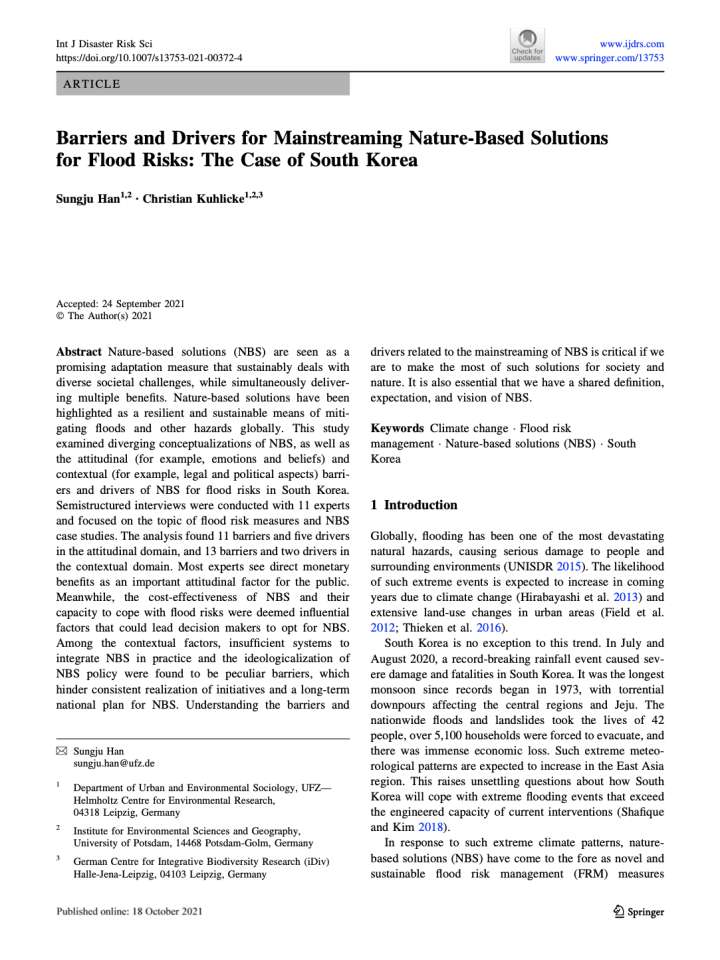Barriers and drivers for mainstreaming nature-based solutions for flood risks: The case of South Korea
This study examines diverging conceptualizations of Nature-based solutions (NBS), as well as the attitudinal (for example, emotions and beliefs) and contextual (for example, legal and political aspects) barriers and drivers of NBS for flood risks in South Korea. NBS are seen as a promising adaptation measure that sustainably deals with diverse societal challenges, while simultaneously delivering multiple benefits. Nature-based solutions have been highlighted as a resilient and sustainable means of mitigating floods and other hazards globally. Semistructured interviews were conducted with 11 experts and focused on the topic of flood risk measures and NBS case studies.
The analysis found 11 barriers and five drivers in the attitudinal domain, and 13 barriers and two drivers in the contextual domain. Most experts see direct monetary benefits as an important attitudinal factor for the public. Meanwhile, the cost-effectiveness of NBS and their capacity to cope with flood risks were deemed influential factors that could lead decision makers to opt for NBS. Among the contextual factors, insufficient systems to integrate NBS in practice and the ideologicalization of NBS policy were found to be peculiar barriers, which hinder consistent realization of initiatives and a long-term national plan for NBS. Understanding the barriers and drivers related to the mainstreaming of NBS is critical if we are to make the most of such solutions for society and nature. It is also essential that we have a shared definition, expectation, and vision of NBS.
Explore further
